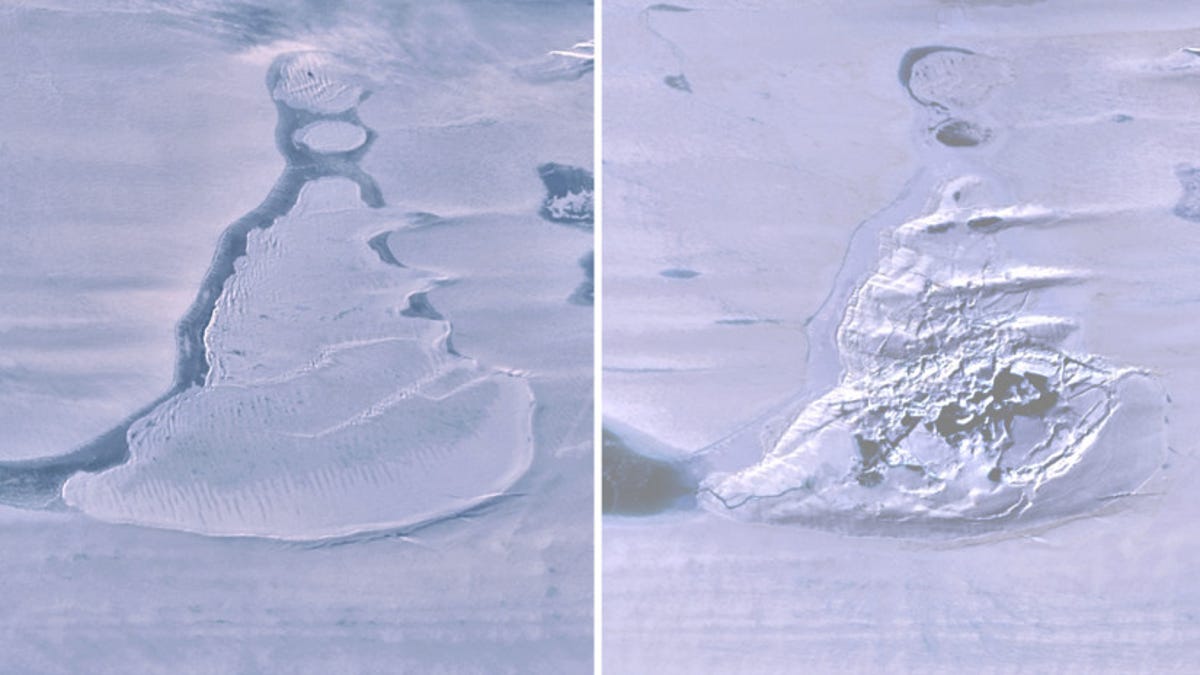A large lake on the east coast of Antarctica has disappeared, causing 200 billion gallons of water to disappear without a trace.
In winter 2019 on the Ameri Ice Sheet, the continent’s third largest ice sheet, some 21 billion to 26 billion cubic feet (600 million to 750 million cubic meters) drained very quickly into the ocean. The loss of the lake was recorded the following summer when scientists looked at satellite images of the area. The results are dated in a new study.
“We believe a large crack opened briefly in the floating ice sheet and drained the entire lake into the ocean within three days,” said Roland Warner, a scientist at the University of Tasmania’s Australian Antarctic Partnership Program who first discovered the main drainage on satellite imagery. .in let go. “The lake has more water than Sydney Harbor and flows out to sea below like it flows over Niagara Falls, so it’s an impressive sight.”
In paper Published last week in Geophysical Research Letters, Warner and colleagues found that the sudden release may have been caused by melting water in the ice. They hypothesize that there is meltwater deposited beneath the deep, ice-covered lake, which compresses the ice sheet and causes fissures that send the water directly into the ocean, in a process known as hydrofracturing that causes the affected lake to massively subside. ice — about 4.24 square miles (11 square kilometers). ) – Immediately started filling with meltwater again last summer.
Meltwater is responsible for the collapse and drainage of smaller ice shelves across the continent. But Al-Amiri Quay is about 4,593 feet (1,400 meters) thick, and this happened in the middle of winter. This makes this event unusual. (As well as leaking lake They appeared in the recent winter on the surface of the Greenland ice sheet thousands of miles away in the Arctic as well).
G/O Media may get commission
–
–
Linking the complete loss of lakes to climate change is a bit tricky. But what it does provide is a valuable case study of how melting of surface ice in Antarctica – which is expected to increase as the planet warms – can affect ice sheet stability. The Antarctic ice shelf also faces threats from damaging warm ocean waters, Especially in West Antarctica. The loss of ice in Antarctica is affecting beaches around the world because of it Contributing to sea level rise.
“This seemingly sudden event is the culmination of decades of accumulation and storage of meltwater beneath the insulating ice sheet,” said study co-author Jonathan Kingslake and researcher at Columbia University’s Lamont-Doherty Earth Observatory. “However, increased amounts of meltwater flowing into ice-covered lakes and causing water cracks in thicker ice sheets should also be taken into account in future Antarctic assessments.”
–

